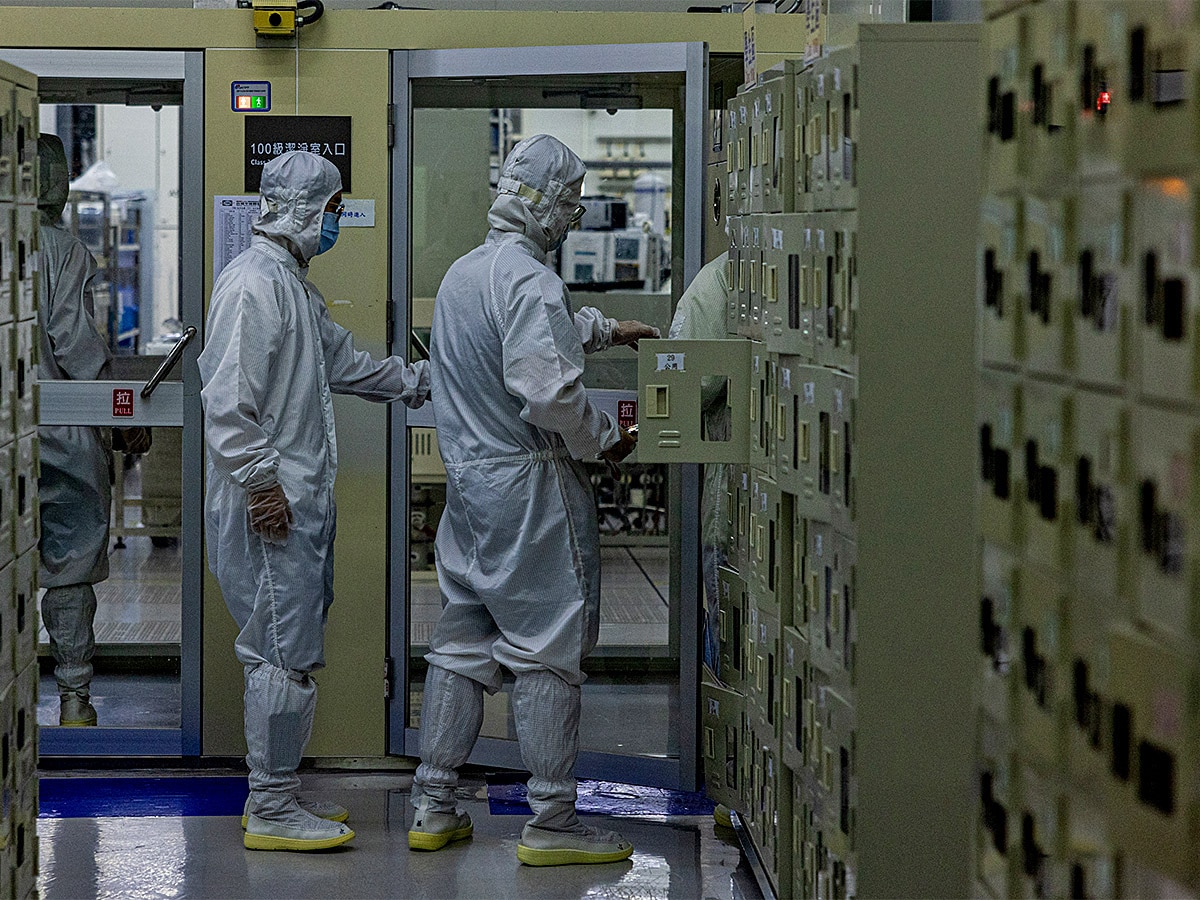The SPDR S&P Semiconductor ETF has been sinking over the past year due to difficult macroeconomic pressures, which have coincided with a downturn in demand for semiconductor chips. Despite major losses among the fund’s top holdings, analysts believe that the long-term future for semiconductor companies remains bright.
The SPDR S&P Semiconductor ETF [XSD] share price has been on a downward slide over the past few months. The ETF has fallen 40.9% year-to-date as of 17 October and in the past year, it has dropped 29%.
This drop has principally been caused by the incredibly difficult macroeconomic environment for growth companies, alongside declining consumer demand and high inventories for semiconductors. However, the long-term future for the industry still looks bright, and there is reason to believe that the S&P Semiconductor ETF may be close to hitting a bottom.
The fund’s holdings are variable to change, and in the past few months, the top holdings have done so frequently, reflecting volatility in the market. As of 17 October, the fund had a total of 38 holdings. At the top of the list is Rambus [RMBS], with a weighting of 3.53%, Diodes [DIOD] at 3.31% and Micron Technology [MU] with a weight of 3.2%. The fund encompasses other large semiconductor companies, such as Nvidia [NDVA], which has a weighting of 2.72% and is its 24th largest holding.
Macroeconomic issues weigh down industry
Macroeconomic issues have burdened many semiconductors. Firstly, inflation and the rising cost-of-living have reduced consumer appetite to buy items such as smartphones, limiting the demand for chips. Therefore, many semiconductor companies have seen their growth decline.
Further, as these semiconductor companies are typically very high growth, this means that they are also often highly indebted. As such, the recent interest rate rises in the US have made it far more expensive to service debt, a factor playing into rising expenses for companies in the industry. Insofar as it deters them from taking on more debt, it may be hindering growth as well.
As Taiwan Semiconductor Manufacturing Company [TSM] warned in July this year, many clients of semiconductor companies, which include technology giants such as Apple, have built up an “excessive inventory” of semiconductor chips. This is further reducing demand for the items, and semiconductor companies are being forced to reallocate some of their capacity to automobile and industrial end markets.
Rambus leads decline in holdings
Underscoring headwinds facing the industry, major players in the fund are struggling to bring returns to their shareholders. The share price for Rambus, the largest holding of the fund, has fallen by 12% year-to-date.
This comes despite the company reporting strong results, in which it appears to have shrugged off the macroeconomic pressures. In its recent Q2 earnings, revenue and earnings were at the high end of its guidance, as Rambus reported a 42.7% year-on-year increase in revenues to $121.1m and a 213.6% increase in net income to $35m. While the share price for Rambus rose as much as 7.1% within the week following the report on 1 August, it returned to flatlining within a month.
This underperformance has been seen across the fund, with Diodes stock dropping 38.5% year-to-date and Micron Technology plummeting 43.1%. Both stocks have vastly underperformed the S&P 500, which has fallen by 24.8% over the same period.
Analysts bullish on semiconductor industry
Analysts are confident regarding the long-term future for semiconductor companies. According to Deloitte, semiconductor chips are expected to remain important across all industries, with the industry expected to grow by 10% this year despite supply chain challenges resulting in potential shortages.
While the fund has declined, analysts remain confident in the future of many of the companies which it owns such as Rambus. Of six analysts providing ratings to the Financial Times, one gave the stock a ‘buy’ rating, four said it would ‘outperform’ and one is calling it a ‘hold’. Five analysts provided 12-month price targets for a median of $33.00, a 27.7% upside on its close of $25.85 as of 14 October.
Micron Technology also has a large degree of positive investor sentiment. Of 39 analysts polled by the Financial Times, the stock has six ‘buy’ ratings, 23 ‘outperform’ ratings, eight ‘hold’ ratings and just two analysts calling it an ‘underperform’. Thirty-two analysts providing 12-month price targets had a median of $65.00, which is an upside of this implies an upside of 23.3% from its close on 14 October.
Disclaimer Past performance is not a reliable indicator of future results.
CMC Markets is an execution-only service provider. The material (whether or not it states any opinions) is for general information purposes only, and does not take into account your personal circumstances or objectives. Nothing in this material is (or should be considered to be) financial, investment or other advice on which reliance should be placed. No opinion given in the material constitutes a recommendation by CMC Markets or the author that any particular investment, security, transaction or investment strategy is suitable for any specific person.
The material has not been prepared in accordance with legal requirements designed to promote the independence of investment research. Although we are not specifically prevented from dealing before providing this material, we do not seek to take advantage of the material prior to its dissemination.
CMC Markets does not endorse or offer opinion on the trading strategies used by the author. Their trading strategies do not guarantee any return and CMC Markets shall not be held responsible for any loss that you may incur, either directly or indirectly, arising from any investment based on any information contained herein.
*Tax treatment depends on individual circumstances and can change or may differ in a jurisdiction other than the UK.
Continue reading for FREE
- Includes free newsletter updates, unsubscribe anytime. Privacy policy





